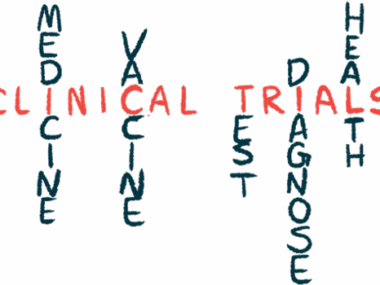US trial of noninvasive ALS device gets green light to enroll patients
Pathmaker to launch second trial of MyoRegulator at single site in Boston
Written by |

A clinical trial that will test a noninvasive, nerve-modulating device called MyoRegulator — designed to slow disease progression in people with amyotrophic lateral sclerosis (ALS) — has been cleared to start patient enrollment in the U.S.
That green light, from an Institutional Review Board, will allow Pathmaker Neurosystems, the device’s developer, to start enrolling participants at a single site in the U.S. The trial will be conducted at the Beth Israel Deaconess Medical Center in Boston, and is expected to enroll more than a dozen people.
Dubbed CALM (NCT06649955) — for Controlling Amyotrophic Lateral Sclerosis Motor Neuron Excitability — the study is being funded by the U.S. Department of Defense. It will be led by Seward Rutkove, MD, and Courtney McIlduff, MD, two professors of neurology at Harvard Medical School. Rutkove serves as chair of the department of neurology at the medical school, while McIlduff is the director of the multidisciplinary ALS clinic at the medical center.
This is the second study assessing the MyoRegulator device in ALS patients. A first Phase 1 trial was launched in 2023 and has been completed, but its results have not yet been announced.
“We are pleased to announce [review board’s] approval for the CALM study, which allows us to commence enrollments shortly,” Nader Yaghoubi, MD, PhD, Pathmaker’s cofounder and CEO, said in a company press release.
ALS trial to test device’s safety, efficacy in about 15 adults
ALS is caused by progressive damage to motor neurons, the specialized nerve cells that control voluntary movements, which leads to worsening muscle weakness and a range of other symptoms.
The exact mechanisms that drive motor neuron damage in ALS aren’t fully known, but hyperexcitability — when nerve cells fire electrical signals more often than they should — and the accumulation of toxic protein clumps inside cells are two mechanisms that seem to play a role.
The MyoRegulator device aims to reduce motor neuron damage and slow ALS progression by reducing hyperexcitability and activating certain pathways involved in protein degradation.
It works by delivering a mild electric current to specific parts of the spinal cord and other peripheral nerves, or nerve cells outside the brain and spinal cord. The current is delivered through disposable electrodes that are applied to the skin. According to the company, the device is being developed for at-home use.
Given the mechanisms by which our technology work, we believe our noninvasive platform represents a new treatment modality that will be broadly applicable to ALS.
The device’s safety, feasibility, and preliminary efficacy in people with ALS were previously assessed in a first-in-human Phase 1 trial (NCT06165172), which enrolled five adults with ALS.
Now, the CALM study has been designed to investigate the MyoRegulator in about 15 adults with ALS. Eligible participants will have had ALS symptom onset within the prior two years.
The study’s aim is to gather additional data on the device’s feasibility, safety, and efficacy over a longer follow-up period. Participants will receive treatment three times a week for four weeks, or about one month, and will be followed for up to six months after completing the treatment period.
The main goals are to assess feasibility, by measuring the number of patients who can complete all treatment sessions at the defined stimulation levels, and safety, by assessing the frequency and duration of adverse events.
Secondary measures to be tested in the trial include changes in Revised ALS Functional Rating Scale (ALSFRS-R) scores, a measure of functional disability, and in a patient-reported measure of the ability to do activities of daily living. Changes in quality of life, muscle strength, lung function, and excitability also will be assessed.
“Given the mechanisms by which our technology work, we believe our noninvasive platform represents a new treatment modality that will be broadly applicable to ALS,” Yaghoubi said.
The trial is being funded by the assistant secretary of defense for health affairs, endorsed by the Defense Department of Defense, via an award to the Amyotrophic Lateral Sclerosis Research Program.






